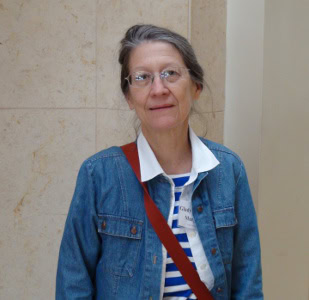This resource was developed as part of the AHA’s Tuning project.
Institution: Regis University
Location: Denver, CO
Year: 2014
Student Learning Outcomes (SLOs)
SLO 1. Show the understanding of the disciplines of HS and POL, which systematically examine change over time and the underlying cause of change—environmental, economic, cultural, linguistic, and/or institutional: History students will know how to read and interpret the evidentiary record to identify and explain the causes and effects of changes over time.
SLO 2. Show understanding of the complexity of such change and its causes: History students will demonstrate the ability to use the historical method in analyzing change over time in three defined fields, from among the following: Europe, Asia, United States, Middle East, World, Latin America, and Africa, as well as over two distinct time periods, pre and post 1500.
SLO 3. Show understanding of society and politics in diverse cultures, explaining intergroup social, economic, individual, and collective dynamics as they change over time and shape their contexts. History students will demonstrate an understanding of diverse cultures and the ability to explain the causes and effects of cultural, political, social, economic, and environmental interactions among diverse groups.
SLO 4. Show ability to read, write, and speak critically and respectfully with empathy, facts, concepts, and theories. History students will demonstrate the ability to read and write critically and to speak persuasively with eloquence.
SLO 5. Show responsible ethical behavior as adults engaged in social and scholarly work.
Discussion of HS Major Requirements
1. Coverage
a. Geographic Regions with reference to environment and resource base rather than to geo-strategic location.
b. Topics with explicit reference to environment and resource base as being relevant to understanding implicit social contract and explicit institutions.
c. Skills beyond a. and b. above and implicit or explicit in the Department’s SLOs.
-
- SLOs 1–2: The Ability to distinguish between the main idea and evidence in support of a main idea orally discuss with peers and family issues the student is learning in class understand how a primary source relates to the course’s content formulate a thesis and support it with evidence use a primary source to support a thesis or argument
- SLOs 3–4: The Ability to parse and relate an argument whether or not the student agrees with it, accommodate perspectives other than the student’s own, represent another’s perspective, assimilate new ideas and information to prior knowledge and experience, and relate issues to the world outside one’s own experience
Major Coverage
a. All 400-level courses must explicitly covers at least 3 of the SLOs.
b. Some courses will by design cover 3 geographic areas.
c. Students should be required to take one course on either side of 1500.
d. Students should be required to take one course on each of at least three continents
2. Major Requirements – Internship and Capstone
a. Required Internship could/should develop out of prior completion of the earlier course fulfillment of SLO 4 at both the 200 and 400-levels. Internships would then be directed by the faculty member(s) for whose courses the student earlier gained service learning/civic engagement experience.
b. Required Capstone Course revisited in terms of content and delivery. Research and writing could/should emerge from prior experience in service learning/civic engagement and the Internship. As such the capstone experience would effectively demonstrate integration of the department’s SLOs and our graduates becoming life long learners and leaders in service to others. History majors could complete the capstone course in one semester drawing on their previous course work and civic engagement, and they could do so under the guidance of any faculty member and, on the model of the Honors thesis, in collaboration with faculty from other disciplines.
c. Revision of the Internship and Capstone requirements would better fulfill the Department’s, the College’s, and the University’s mission.
3. Disciplinary Learning Objectives and the 2-Semester HS/POL College Core
A menu of possible 200-level courses, much like the menu of 200-level freshman seminars, that allows each faculty member to teach in their comfort zone, while incorporating the above geographies, topics, and skills, could be developed. Focused on posing meaningful interdisciplinary questions, these courses could provide an introduction to the social sciences, while also incorporating all four of our SLOs.
Course Titles that could incorporate all 4 SLOs follows. Some of these would lend themselves to team teaching with faculty from another discipline.
- 3 or more continents and pre and post 1500
- Naming and Subdividing the Continents
- The invention of Area Studies
- 2–3 Continents pre and post 1900
- Missionaries and Merchants in the Middle East/ or Africa/ or wherever in a select time period
- The Mississippi Moundbuilders
- 2 continents pre 1500
- Astronomy in the pre-Colombian Americas
- 3 continents/post 1500
- The League of Nations and Empire
- The Arab Spring to OWS
4. How might students build their HS portfolios with numbers 1–3 in mind.
Students could construct a portfolio with 4 parts and include at least one example (which the student would select) of their work to showcase their achievement(s) in each SLO.
Related Resources

June 9, 2024

